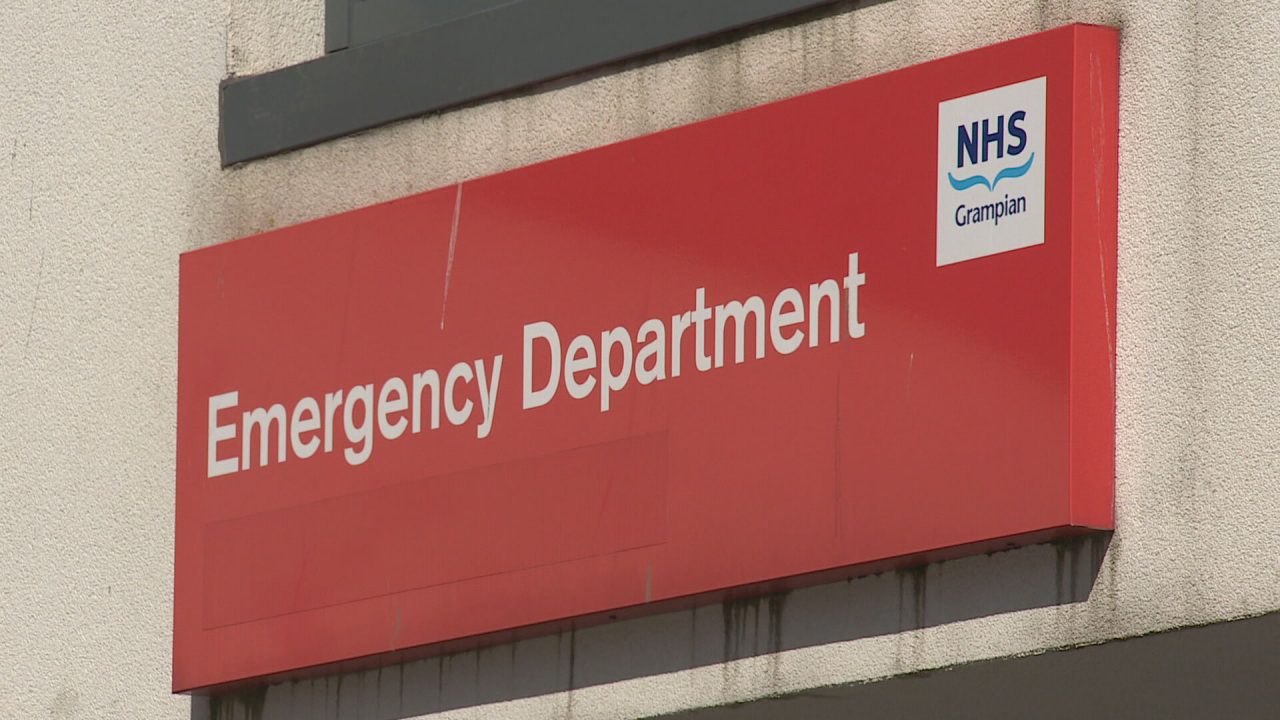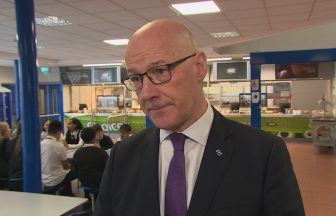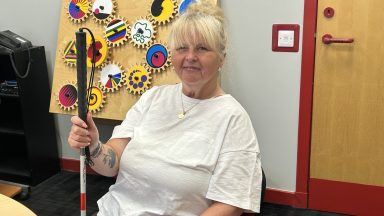Dozens of major improvements have been ordered at two hospitals in the north east of Scotland following unannounced visits by inspectors.
Healthcare Improvement Scotland (HIS) issued 20 requirements for Dr Gray’s in Elgin and 12 for Aberdeen Royal Infirmary (ARI).
Concerns were raised by the watchdog about the management of controlled drugs in the Dr Gray’s emergency department and issues about managing patient cannulas in Aberdeen Royal Infirmary’s A&E were highlighted.
The inspectors had made unannounced visits to both hospitals last October.
Several drug cupboards at Dr Gray’s were found to be unlocked in the emergency department and acute medical admissions unit during the inspection.
The area could be accessed by patients, visitors, or staff without being easily seen due to the layout of the department.
In its report, HIS said that only 44% of the registered nursing staff in the emergency department at Dr Gray’s, and 64% on the paediatric ward, had completed a paediatric immediate life support course.
As a result, an external company has been approached to provide staff training with the intention that all registered nurses in both the emergency department and paediatric ward receive it.
In its inspection at ARI, concerns included how to manage patient cannulas.
At the time, the hospital, “like much of NHS Scotland” was experiencing “significant pressures” which included an increase in hospital admissions.
It meant that patients were being cared for in additional beds in non-standard areas such as treatment rooms or corridor spaces, impacting on the ward environment, staff workload and patient experience of care.
The inspector praised staff, saying they were “focused on providing safe and compassionate care” and patients felt they were being treated with respect, dignity, and compassion.
“An open and transparent culture” at safety huddles was also highlighted with senior managers and lead nurses working together well.
At Dr Gray’s serious concerns regarding the management of controlled drugs within the emergency department were raised by the inspector and in the oversight and “management of the incident reporting systems and processes impacting on patient safety, dignity, and respect”.
Staff had reported a culture where they were encouraged to raise concerns but did not feel that these were always listened to by senior managers.
Responding to the findings Dr June Brown, NHS Grampian’s executive nurse director, said she was pleased by the positives identified by HIS and made assurances that work is already under way on those areas requiring improvement.
“I’m delighted that our extremely hard-working staff have been recognised by inspectors as providing “caring, compassionate and responsive care”, since that is what we strive to deliver to the thousands of patients that come through the doors of ARI each year,” she said.
“HIS praised the hospital’s ‘open and transparent culture with a good focus on patient care’ and I am grateful their diligence was observed first-hand. I want to thank all staff for their continued efforts in looking after the population of the north-east and beyond.
“We have a proven record of working constructively with HIS colleagues and were able to resolve some of the things brought to our attention during their visit. However, we know we’ve more to do and are using the report to direct our focus.
“Where patient care wasn’t as we would have expected, I would take this opportunity to apologise to patients and assure them that we have a comprehensive action plan for improvement.”
Alasdair Pattinson, general manager at Dr Gray’s, said: “Our goal is to make Dr Gray’s one of the best local hospitals in the country.
“We are grateful to HIS for their feedback and will use this as a springboard to further improve services.”
Dr Gray’s hospital clinical director Professor Duff Bruce added: “While we’re delighted with the positive report findings for Dr Gray’s, we understand there are areas for improvement.
“We completely accept that we don’t always get it right, and on the occasions where care wasn’t at the high standard our patients expect, I’d like to apologise and offer people my assurance that we have a comprehensive action plan in place to ensure that we learn from and avoid these types of issues in the future.
“While we always prioritise individual patient care, we recognise the importance of appropriate administration and record keeping and are already implementing new measures to build on our existing policies.
“The new, dedicated clinical skills centre at the hospital, development of which is firmly underway, will play a pivotal role in future skills development. It will support staff in refining existing techniques and cultivate new skills across the hospital.”
Follow STV News on WhatsApp
Scan the QR code on your mobile device for all the latest news from around the country


 STV News
STV News


















